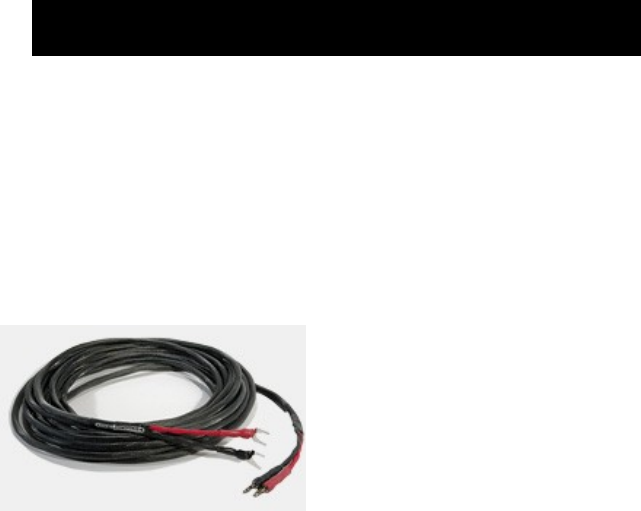
Chapter 6-1 Wiring
SV Sound
Speaker wiring: Exceptional care must be used at this stage
to ensure details are not overlooked. Check everything closely as
you wire things up, then ―double check‖ each aspect of your
connections before you move on.
First, review the printed Quick Start Guide and note the simplified
wiring diagram which should allow you to visualize your system’s
connections. The diagram in the guide shows a 5.1 channel
configuration with a typical AVR that’s actually capable of powering
an additional set of rear/back speakers in 7.1 channel fashion.
Next, be sure everything in your
system is turned off and unplugged
from electrical power.
Now, study the speaker wire you
have purchased. For long runs
over 5-10 meters we recommend
―12 gauge‖ wire. For shorter runs,
―14 gauge‖ is adequate. If you
bought wires from your SVS dealer,
you will notice the red/black color coding on the ends of the wires.
Observe that on the back of your speakers are ―binding posts‖ which
are likewise colored. Probably the back of your receiver or amp is
also marked in this manner. Red is universally ―+‖ or ―Positive‖ in
polarity. In contrast notice that Black is ―-‖ or ―Negative‖ polarity. The
thin ―banana‖ plugs are meant for the AVR side of your audio
connections. The flat ―spades‖ are best for connecting the speaker
binding posts themselves.
It is critical that you not have stray strands of wire which allow Red
(+) and Black (-) to touch each other either at the receiver, or the
speakers. Also vital is the need to keep polarity correct. By
―polarity‖, we mean that if you trace any wire from your receiver’s
Red positive (+) connection it must lead to the positive (+) Red
terminal on the properly matched speaker. Naturally, Black must
lead to Black too.
Now, not all wire is so cleverly color coded. Good quality copper wire
from any hardware store can work well, but may require you to look
more closely at the wire, or insulating jacket. Often times the jacket
itself is marked with printing or a thin color thread to allow you to
keep polarity in your system lined up.


















